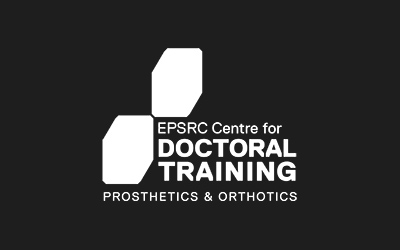Find out more
Find out what one of the UK's leading academic centres of Prosthetics and Orthotics excellence has to offer. Read on to learn more about our centre, how to apply and our our training process!
The University of Salford is one of the UK's leading Centres for Doctoral Training (CDT's). CDT's brings doctoral postgraduates together and provides high quality training and aids students in research.
Find out what one of the UK's leading academic centres of Prosthetics and Orthotics excellence has to offer. Read on to learn more about our centre, how to apply and our our training process!
Here you can meet all our lovely society members and learn about their projects.

As a society, we strive to address current challenges within the wider healthcare technology sector and produce innovative solutions needed to meet aspirations of prosthetic and orthotic users.